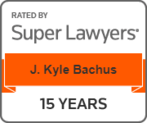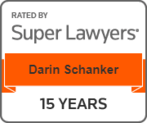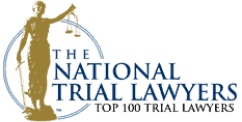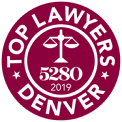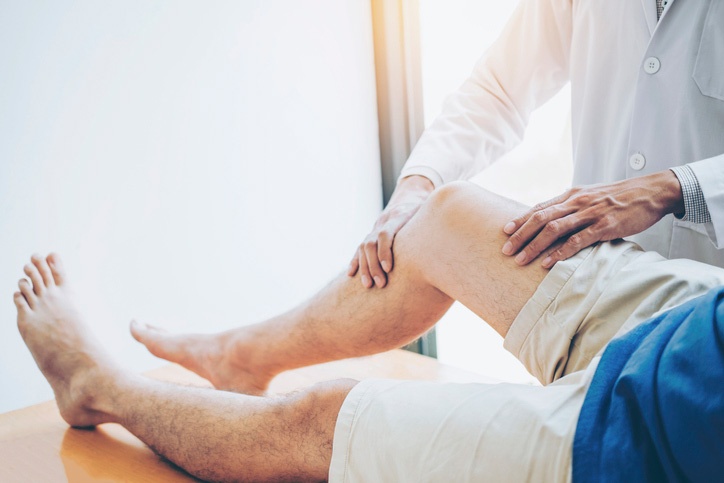COLORADO PREMISES LIABILITY LAWYERS
The premises liability lawyers at Bachus & Schanker are a team of experienced Colorado attorneys dedicated to helping victims claim monetary compensation after an accident on a dangerous property.
If you’ve been hurt on someone else’s property, the responsible party should pay for your damages. Our lawyers for premises liability can help you exercise your rights and hold the wrongdoers accountable.
Personal Injury Lawyers » Practice Areas » Colorado Premises Liability Lawyers
- What Is Premises Liability?
- How Can a Premises Liability Attorney Help Victims?
- What Are Common Premises Liability Injuries?
- Who Is Liable If I'm Injured on Someone Else's Property?
- What Types of Premises Liability Cases Do You Handle?
- What Are Colorado Premises Liability Laws?
- How Do You Prove Premises Liability?
- How to Recover Compensation for Premises Liability?
- Visit Our Office Locations Across Colorado
- Premises Liability Legal Reviews
- Related Premises Liability Resources
- You Deserve Fair Compensation
What Is Premises Liability?
Premises liability is when someone has legal liability for a personal injury because of a dangerous condition on their property. It allows a victim to claim financial compensation from the person or party responsible for the injury.
A property owner has a duty of care to make sure others are safe on their property. They are not necessarily responsible for all personal injuries that occur. However, legal liability is based on the status of the injured person on the property as an invited guest, a mutual guest (licensee), or a trespasser.
Speaking with a skilled premises liability lawyer can help you establish whether you have a case and what your claim may be worth. Call our team today to schedule a free case evaluation.
How Can a Premises Liability Attorney Help Victims?
A premises liability attorney can help victims with several services, including:
- Investigating what happened and gathering proof
- Determining the legal status of the person who enters onto the property
- Calculating damages and proving the right to compensation
- Identifying insurance policies that may be available to collect damages
- Starting a legal claim
- Legal procedure and process including speaking in court on your behalf
- Preparing a legal strategy to pursue the case
- Settlement negotiation; speaking to the defense
- Evaluating settlement offers and determining whether the victim should accept a settlement offer
- Conducting a trial
Ultimately, a premises liability attorney’s goal is to see that the victim gets the financial compensation that they are owed. They take care of all the steps involved, both in the court process and behind the scenes, to pursue their client’s rights.
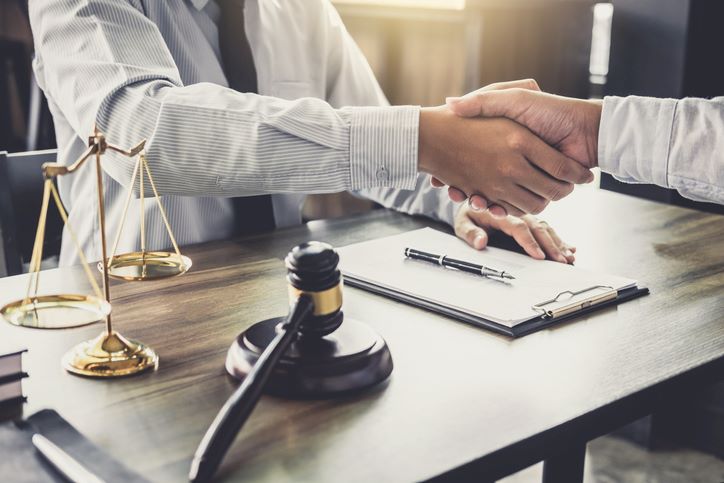
What Are Common Premises Liability Injuries?
Common premises liability injuries include:
- Traumatic brain injury/concussion/skull fracture
- Broken arms and wrists
- Back strains
- Paralysis, quadriplegia, tetraplegia, nerve damage
- Internal organ damage
- Electric shock, burns
- Toxic exposure, poisoning, illness
- Drowning
Premises liability injuries can occur because of falls from the same level or an elevated height, crushing and stuck-between injuries, electric shock, and exposure to harmful substances. A variety of injuries may occur after these types of accidents.
If you’ve been hurt in an accident on someone else’s property, it’s critical to seek medical care to verify and document injuries.
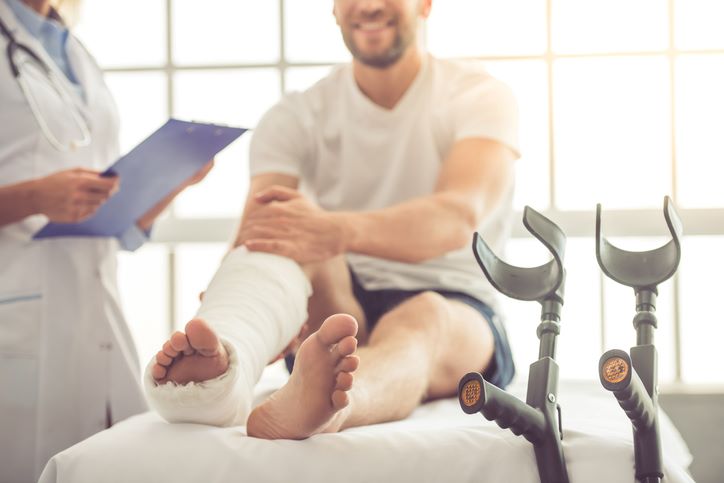
Who Is Liable If I’m Injured on Someone Else’s Property?
The party who owns or controls the property may be liable if you’re hurt on someone else’s property. In addition, there may be another party responsible for negligence.
For example, a business is responsible if its employees fail to clean up a spill. If there are known dangers to the property itself, like cracks in the sidewalk, uneven flooring, or accumulated ice, the property owners can be held liable for leaving these conditions unattended.
If a hazardous condition on another person’s property left you injured, you may deserve compensation. Call our personal injury law firm for a free consultation to see if you have a case.
What Types of Premises Liability Cases Do You Handle?
Our premises liability attorneys handle many types of cases, including:
- Slip and falls; falls from the same surface or an elevated surface
- Trips from uneven surfaces and objects in path
- Amusement park incidents
- Negligent security; failing to protect entrants from others on the property, overcrowding
- Accidents involving convenience stores, retail establishments, restaurants, repair shops, and other businesses
- Workplace injuries
- Fires, electrocution, and shock
- Elevator, escalator, and broken railing injuries
- Structural collapses
- Toxic substances and harmful exposure, chemical spills
- Poor lighting
- Injuries involving children
- Attractive dangers like swimming pools, trampolines, and gravel pits
- Other dangerous conditions on a property
If you lost a loved one after an accident on another person’s property, you may qualify to bring a wrongful death claim. Speak with an attorney to learn more about premises liability lawsuits and wrongful death.
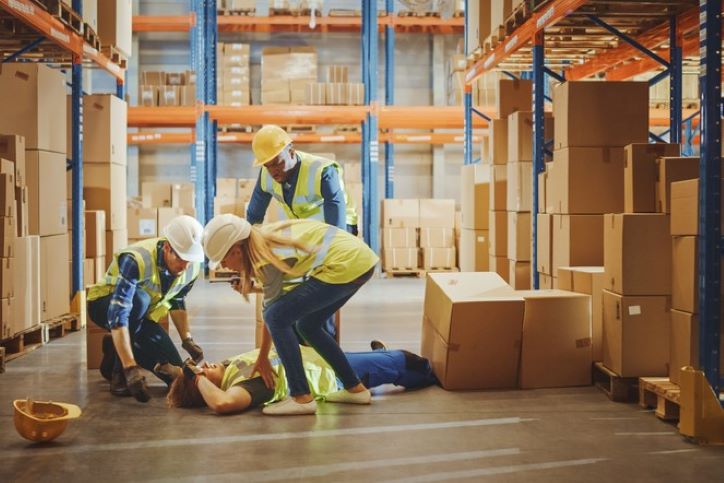
What Are Colorado Premises Liability Laws?
Colorado Revised Statutes § 13-21-1151 is the Colorado Premises Liability Act. The Act creates laws for when a victim may recover damages if property owners fail to exercise reasonable care to protect against dangers.
The law creates three different legal standards for the property owner depending on whether the person hurt is an invitee, mutual guest, or trespasser.
- Invitee – An invitee enters the property to transact business with the property owner. They are requested and expected to enter and remain on the property. They may recover damages for any unreasonable failure to protect against dangers that the property owner knew about or should have known about.
- Mutual Guest – A mutual guest, or licensee, enters the land for their own interests. A social guest is a licensee. The landowner may be liable to a licensee for a failure to exercise reasonable care against dangers they know of, or an unreasonable failure to warn of hazards that are not ordinarily present at that type of property that the landowner knows.
- Trespasser – A trespasser enters onto the property, or a portion of the property, without landowner consent. The property owner is liable only for damages they willfully or deliberately cause to a trespasser.
How Do You Prove Premises Liability?
To prove a premises liability claim, you gather admissible evidence that satisfies all the elements. The victim must prove their status on the property, what the dangerous condition was, and that the victim had legal liability based on the standards in place.
Then, they must link the dangerous condition to the accident and the injuries. The victim has the burden to prove every element and identify and prove the amount of damages they deserve, including compensation for medical bills and pain and suffering.
RELATED: Types of Damages for Premises Liability Claims
How to Recover Compensation for Premises Liability?
Take action today to receive compensation for premises liability and get the monetary payment you deserve. Contact our Colorado premises liability lawyers for your confidential consultation about your case. We are conveniently located at 5 Colorado locations near you in Denver, Fort Collins, Colorado Springs, Aurora, and Englewood. We respect your privacy, and we are proud to fight for your rights. Call us today to get started with no upfront fees.
Visit Our Office Locations Across Colorado
Serving Clients Nationwide
Premises Liability Legal Reviews
Related Premises Liability Resources
You Deserve Fair Compensation
Don’t let the insurance companies intimidate you into accepting less than you deserve. We’re ready to fight for you.
